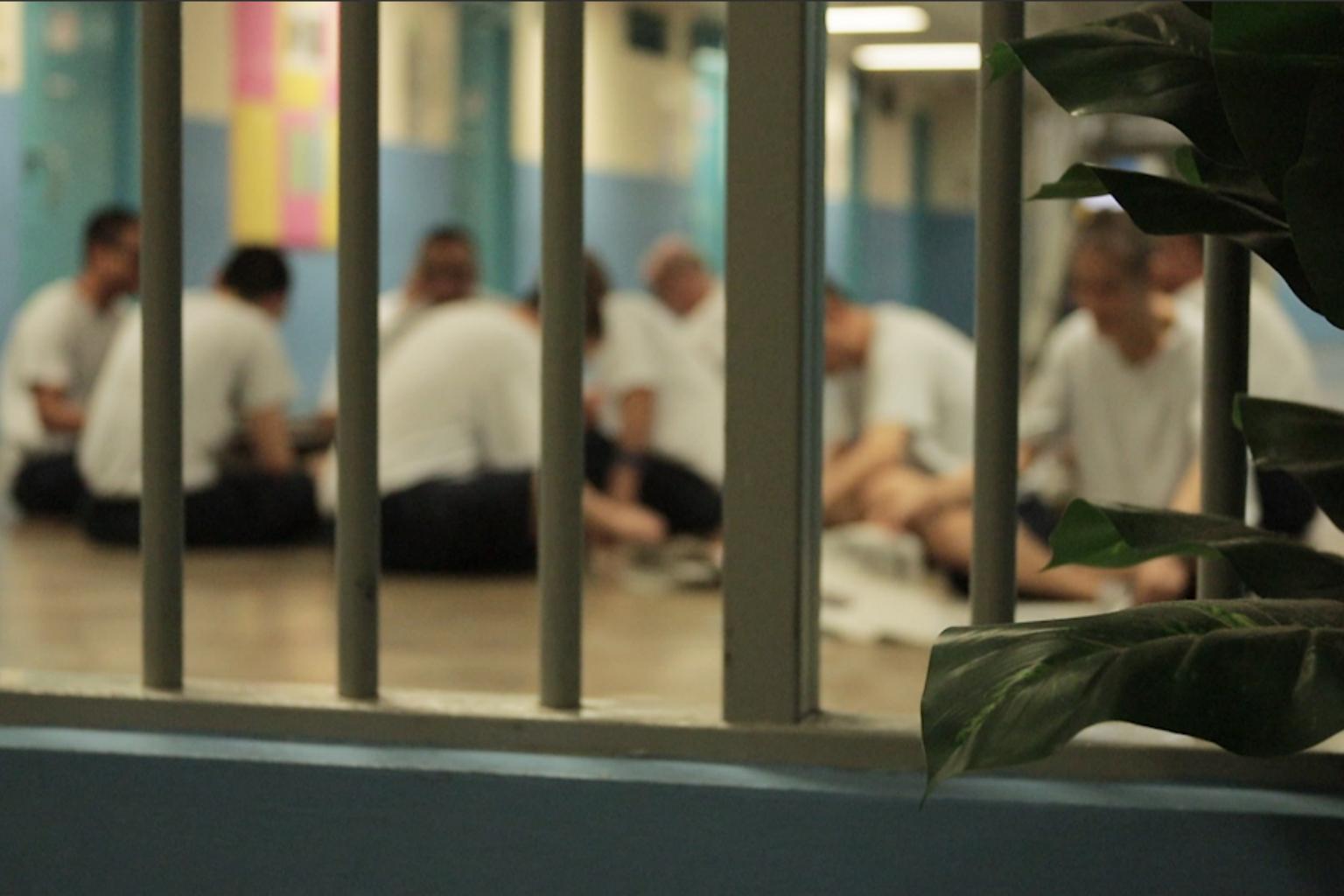Ex-offenders who want to work at restricted areas, key installations not ruled out on blanket basis
Sign up now: Get ST's newsletters delivered to your inbox

The police use a risk matrix where factors relating to a person's past offences are assessed to determine his suitability.
PHOTO: ST FILE
SINGAPORE - Former offenders who wish to obtain passes to work at key installations, such as Jurong Island and Changi Airport, are not ruled out on a blanket basis by the police.
Instead, the police use a risk matrix where factors relating to a person's past offences are assessed to determine his suitability.
Minister for Home Affairs K. Shanmugam said on Tuesday (April 5) that anyone who wishes to have access to restricted areas in such key installations will have to be screened by the police.
“We have seen in Singapore and overseas, incidents where insiders used or attempted to use their access for wrong purposes, sometimes with serious consequences,” he said.
"Past offences are a consideration when screening persons for such passes."
He added that someone with antecedents of concern may also be required to remain offence-free for some time before he or she is allowed access to such sensitive facilities.
The minister was responding to a question from Mr Leon Perera (Aljunied GRC) about whether the Government has any policy prohibiting former offenders from entering or being employed at key installations.
Mr Perera had also asked what categories of offences are covered by this policy and what conditions need to be met before the prohibition lapses.
Mr Shanmugam said Yellow Ribbon Singapore (YRSG) works closely with employers and industry partners so that former offenders can find jobs across a wide range of sectors, and not just at key installations.
“As at end of February 2022 – about 5,800 employers are registered with YRSG to offer employment to ex-offenders. With over 2,700 job listings, there are many job vacancies, and as any employer will tell members here, the key issue in Singapore is actually lack of manpower,” he said.
"In 2021, YRSG provided employment assistance to over 2,900 inmates. Of these, over 2,700, or 94 per cent of them, secured jobs successfully."
Mr Shanmugam said it was not clear to him why the focus of the question was on employment of former offenders at key installations specifically.
He said that last year, Associate Professor Jamus Lim (Sengkang GRC) had made a related set of points as Mr Perera.
Mr Shanmugam said: “I told him, do you want convicted paedophiles working in childcare centres, or those who have been convicted of serious offences, or those who have been convicted of serious offences albeit non-violent, to use his language, to be security officers at condominiums? Or would it be better that we have a risk matrix, and assess suitability for different jobs, and yet help all of them find jobs?”
The minister added:“If Mr Perera or (Prof) Lim believes that ex-offenders – be they child molesters or have convictions for housebreaking – should be allowed to be say, security officers, without their conviction record being available to employers, or that they should be allowed access to highly security-sensitive locations, first, maybe we can try out some private installations which they can suggest, and I am prepared to consider this favourably.
“If they say, well it depends on the offence, then in principle, they agree with the approach taken by the Government, and that is what we do now, because we adopt a risk matrix approach.”
Mr Perera responded that his view was that a nuanced approach be taken.
Prof Lim said that his question posed last year mentioned specifically that it was with regard to non-violent offenders which exclude those who committed sexual crimes and misdemeanours.
"I think it's a bit of a mischaracterisation to argue that it is about allowing paedophiles back into the system," he said.
Mr Shanmugam responded that fraud, cheating and looking at child pornography were also non-violent.
He said: "So let's be clear about this. The Government is very focused in trying to assist, but we are also very clear-eyed about trying to make sure that the vulnerable are protected."
Later on in the sitting, Mr Shanmugam again rose to clarify that Prof Lim's claim, that his question last year excluded sexual crimes and misdemeanours, was false.
He said the question posed by Prof Lim then was whether the Government would consider expanding the Yellow Ribbon Project such that former offenders of non-violent crimes will be eligible for the elimination of their criminal history from public records, contingent on an extended period of good behaviour following successful reintegration in society.
Exclusions for sexual crimes and misdemeanours were not mentioned in the question posed by Prof Lim then.
"Sexual crimes were not excluded, if they were non-violent, nor were misdemeanours excluded, if they were non-violent," he said of the question posed last year.
"So let's be careful, and let's also be clear what we said and what we didn't say in Parliament."


